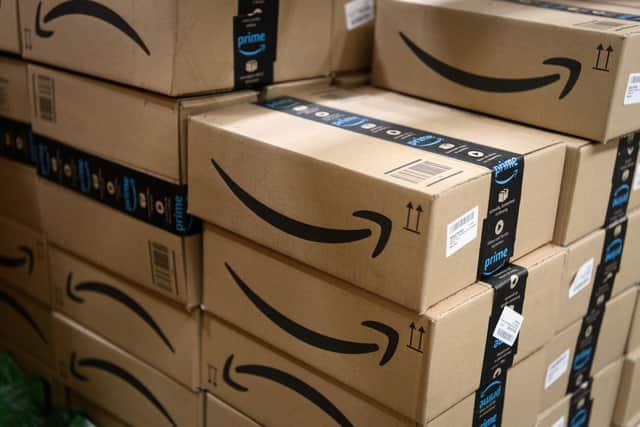"Teen Hero Ignites First Aid Revolution in Luton" - Discover how Haresh Sivalingam's quick thinking sparked a wave of first aid training and community resilience!
If it sounds too good to be true - it probably is 🙅♂️❌
Amazon Prime Day has become a highly anticipated event for shoppers worldwide, promising exclusive deals and significant discounts on a wide range of products. However, as with any major shopping event, the excitement also attracts scammers looking to exploit eager consumers. As we approach Amazon Prime Day 2024, it's crucial to stay vigilant and informed about the potential scams that could turn your shopping spree into a nightmare. Here’s what experts are warning about this year.
Phishing Scams: Too Real to Ignore

Source: https://www.scotsman.com/news/crime/amazon-prime-day-scam-advice-expert-4702346
One of the most common threats during Amazon Prime Day is phishing scams. These scams often come in the form of emails or text messages that appear to be from Amazon, luring unsuspecting customers with promises of exclusive deals or urgent account warnings. Clicking on these links can lead to fake websites designed to steal your personal and financial information.
Experts recommend being wary of unsolicited communication. Always double-check the sender's email address or phone number and avoid clicking on suspicious links. Instead, log in directly to your Amazon account through the official website or app to verify any claims.
Fake Websites: Too Good to Be True
Another prevalent scam involves fake websites that mimic Amazon’s official site. These sites are designed to look almost identical to the real thing, tricking shoppers into entering their login credentials or purchasing items that will never be delivered. The telltale sign of these fraudulent sites is usually the URL; they often have slight misspellings or additional characters that differentiate them from the legitimate amazon.com address.
Before making any purchase, ensure you’re on the official Amazon website. Look for indicators such as secure "https" connections and the padlock icon in the address bar. If a deal seems too good to be true, it’s worth taking an extra moment to verify its authenticity.
Counterfeit Products: Too Risky to Ignore
With the influx of sellers participating in Amazon Prime Day, counterfeit products often manage to slip through the cracks. Fake goods can range from electronics to clothing and even health-related items, posing not only a financial risk but potential safety hazards as well.
To avoid falling victim to counterfeit scams, scrutinise product reviews and ratings. Authentic products generally have more reviews and detailed feedback from verified purchasers. Additionally, prioritise items sold and shipped by Amazon, as they are more likely to meet quality and safety standards.
Fake “Amazon” Customer Service: Too Unusual to Trust
Scammers have also been known to pose as Amazon customer service representatives, contacting shoppers through phone calls, emails, or chat messages. These imposters often claim there’s an issue with your order or account that requires immediate attention, prompting you to provide sensitive information or make payments.
If you receive an unexpected communication from someone claiming to be Amazon customer service, do not provide any personal details. Hang up the call or end the chat, and reach out to Amazon’s official customer service through the contact options listed on their website to verify the legitimacy of the claim.
Conclusion
As you gear up for Amazon Prime Day 2024, remember that diligence and caution are your best allies. Scammers are becoming increasingly sophisticated, but by staying informed and following expert advice, you can protect yourself from falling into their traps. Remember, if a deal sounds too good to be true, it probably is. Happy shopping, and stay safe!